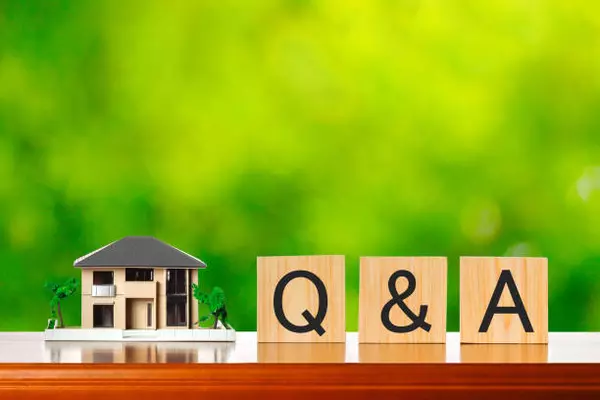FREQUENTLY ASKED QUESTIONS
Why do I need a real estate agent?
A real estate agent can be very helpful in making the home buying or home selling process easier and less stressful. Real estate agents have the knowledge and experience to guide you through the process, from researching the market to negotiating the best purchase price and closing the deal. On top of that, real estate agents can answer any questions you may have about the process and provide any necessary documentation. Overall, a real estate agent can help make sure you get the best deal possible and make the entire process as smooth and stress-free as possible.
Can you help me buy or sell a house anywhere?
I am only licensed in Georgia & North Carolina, but I have a network of referral agents all over the United States if you are looking to buy or sell in a different state.
Why do I need to schedule a buyer’s consultation?
Have you been thinking about buying a home but don’t know where to begin? Do you have questions about homeownership but are not quite ready to buy?
Scheduling a buyer's consultation is important because it allows you to meet with a real estate agent to discuss your specific needs and preferences in a home. This meeting will help the agent to better understand your goals and desires so they can help you find the right home.
Additionally, the consultation is a good opportunity to ask any questions you may have about the home buying process and to learn more about the local real estate market.
What credit score do I need to buy a house?
Generally, a credit score of at least 580 is typically needed to purchase a house. However, this can depend on the type of loan you are applying for and the lender's individual overlays. It is always a good idea to check with a lender to get an accurate picture of what score they are looking for before applying for a mortgage.
What is the first step of the home buying process?
Getting pre-approved for a mortgage is the first step of the home buying process. Getting a pre-approval letter from a lender gets the ball rolling in the right direction and it will help streamline the entire home-buying process. If you don’t already have someone in mind, I partner with some of the best lenders in the industry, and I’d be happy to introduce you, so you’ll be taken care of.
How do I get pre-approved?
CLICK HERE for more information on the Pre-Approval Process. You can also find our Mortgage Pre-Approval Checklist there as well.
How long does it take to buy a home?
The overall timeline can vary, but once a home is selected and the offer is accepted, the average time to complete the escrow period on a home is 21 to 45 days (under normal market conditions).
How much money do I need to buy a house?
The amount of cash you will need to have available to complete your home purchase depends on multiple factors, primarily the price you pay for the house and the type of loan you acquire. Some of the common expenses that you will encounter in most standard real estate transactions and funds you will need to have on hand are earnest money, inspections, appraisal, down payment, and closing costs.
As a buyer, should I get a home inspection?
Yes! It is highly recommended to have a home inspection before buying a home. Home inspections provide important information about the condition of the home, and can help identify any potential issues or problems that could cost you money in the future. In addition, the inspection can provide peace of mind and help you make an informed decision about the home you are considering.
What is earnest money?
Earnest money is often described as a “good-faith deposit” from an interested buyer. The amount is usually 1-3% of the home’s purchase price and it shows that the buyer is serious about the offer they have made. The earnest money put down will be credited to either the buyer's down payment or closing costs at closing.
What are closing costs?
Closing costs are fees paid at the closing of a real estate transaction. Buyers and sellers are each responsible for their own set of closing costs on a home sale.
Who pays closing costs?
Generally, closing costs are paid by both the buyer and seller. Generally, most of the closing costs are the responsibility of the buyer, but laws and customs vary from state to state.
Some most common closing costs for buyers are origination fees & discount points, application fee, credit report fee, lender’s title insurance, appraisal fees, pre-paid expenses (insurance & property taxes), recording fees, attorney fees, survey, HOA transfer fees & homeowner’s insurance. Cash buyers will not have to pay any mortgage-related fees, but still may opt to pay for appraisals, inspections, and owner’s title insurance.
Some most common closing costs for sellers are agent commission (both seller’s and buyer’s agents), outstanding mortgage(s) or lien(s), title search, transfer tax, owner’s title insurance, attorney fees, prorated property taxes, HOA transfer fees/dues & credits toward buyer closing costs or repairs, if any.
The buyer and seller may negotiate who pays certain closing costs.
Do I need a down payment to buy a house?
Generally, you will need to provide a down payment in order to purchase a house. The amount of your down payment will depend on the type of loan you're obtaining and the lender's requirements. In many cases, lenders will require a minimum of 3.5% of the purchase price as a down payment. However, there are a few loan programs available that can allow you to purchase a home without having to provide a down payment. It's best to speak with a lender to find out what options are available to you.
Where can my down payment & closing costs come from?
Down payment and closing cost funds may come from checking/savings account funds, 401k (both withdrawals and/or loans), gift funds from family members, down payment assistance loan programs, sale of an asset, donations/gifts from acceptable entities, and/or employer assistance.
What are real estate contingencies?
Contingencies are conditions or provisions that must be met in order for the real estate sale to go through. Five common contingencies are home inspection, appraisal, financing, home sale & title.
Why do I need to schedule a seller’s consultation?
Scheduling a seller's consultation can provide you with valuable information and guidance on how to effectively sell your property. During the consultation, a real estate agent can assess the value of your property, provide tips on how to prepare your home for sale, and answer any questions you may have about the selling process. Ultimately, a seller's consultation can help you make informed decisions and maximize the potential value of your property.
What should the list price of my home be?
Deciding on the list price of your home is a very important decision and one that requires careful consideration. The first step in deciding your home’s list price is to get a comparative market analysis (CMA) from a real estate agent. To perform a CMA, we will find similar homes in your neighborhood that have similar square footage, number of bedrooms, and number of bathrooms. There are several factors to take into account such as the current market value of similar homes in your area, the condition of your home, and the features and benefits it offers.
Should I sell my current home before buying a new one?
It depends on your specific circumstances. It may be worth considering the pros and cons of selling your current home before purchasing a new one. On the plus side, selling your home first could give you the opportunity to have cash on hand to use towards your new home, and could make you an attractive buyer to potential sellers. On the other hand, selling first could mean that you're without a home for some time, which could be stressful and/or costly. Ultimately, it's up to you to decide what's best for your unique situation.
What is the difference between a Seller’s Market & Buyer’s Market?
A Seller’s Market is when there is high demand for homes and not enough homes to meet that demand. This means that the seller can set higher prices and have buyers compete for the limited inventory. On the other hand, a Buyer’s Market is when there are plenty of homes and not enough demand, meaning buyers have the power to negotiate lower prices and pick and choose from the many homes on the market.
How can I work with you?
I’m excited you are ready to work with me! CLICK HERE to schedule your phone consultation.
Is your question not answered here? Send us a message.
- Find an AgentWe are here 24/7 to assist you with your home buying and selling needs from start to finish.



